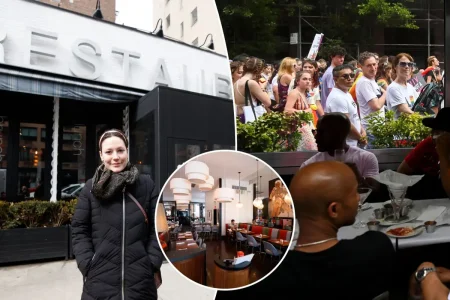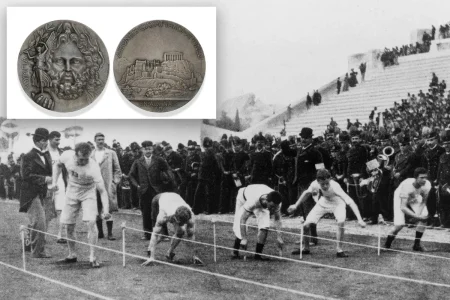The Snorkel Saga: A Deep Dive into Accessibility and Discrimination at Maidstone Leisure Centre
Kiril Georgiev, a 42-year-old software engineer residing in Bearsted, found solace and essential physical therapy in the waters of Maidstone Leisure Centre. A 2014 diagnosis of a giant cell tumor of the bone in his spine necessitated a significant surgical intervention, replacing a quarter of his vertebrae with a metal implant and reinforcing another quarter with metal screws and rods. This life-altering procedure restricted Georgiev’s physical activities, leaving swimming as one of the few low-impact sports he could pursue without exacerbating his spinal condition. Crucial to his ability to swim was the use of a snorkel, a device that allowed him to maintain proper body alignment and avoid straining his neck and spine. From December 2020, Georgiev became a regular at the leisure centre, his snorkel use understood and accepted by both lifeguards and management. This established routine, a lifeline for his physical well-being, was abruptly disrupted on December 23rd, 2024, setting in motion a chain of events that highlighted the complex intersection of safety regulations, accessibility, and potential discrimination in public spaces.
Georgiev’s accustomed swim took an unexpected turn when he was instructed to leave the pool due to his use of a snorkel. The reason given, he recounts, was a newly implemented blanket ban on the equipment. Previous conversations with lifeguards, where he explained the medical necessity of the snorkel, had always resulted in understanding and acceptance. This sudden shift, communicated without prior warning, left Georgiev feeling humiliated and bewildered. He attempted to reason, explaining his medical condition and his unimpeded snorkel use at other facilities, including the Olympic pool in Stratford. The lifeguard’s response, according to Georgiev, was that the ban stemmed from lifeguards not being trained to remove a snorkel from a drowning swimmer’s mouth. This explanation seemed incongruous to Georgiev, given his past experiences and the seemingly arbitrary nature of the ban.
The leisure centre’s equipment policy, last updated in October 2024, states that snorkel use "may be restricted in general public swim sessions," leaving room for interpretation and seemingly contradicting the enforced blanket ban. Georgiev argues that this ambiguous policy, when applied as a blanket ban, becomes discriminatory, effectively barring individuals with injuries or disabilities who require such equipment from accessing the essential benefits of swimming. He expresses his willingness to waive any liability on the part of the lifeguards, emphasizing his desire to simply continue his essential exercise routine without posing any perceived risk.
The incident has left Georgiev feeling deeply disheartened. Swimming, the only sport he can safely participate in, is now inaccessible to him at his local leisure centre. This restriction represents a significant lifestyle change, impacting his physical and mental well-being. Georgiev has lodged a formal complaint with Maidstone Council and has reached out to his Member of Parliament, Helen Whately, seeking intervention and a resolution that allows him to return to his vital swimming regime. His case highlights the need for clear and inclusive policies in public spaces, ensuring that safety regulations do not inadvertently create barriers for individuals with disabilities.
The core issue lies in the interpretation and application of the leisure centre’s equipment policy. While the policy mentions potential restrictions on snorkel use during public swim sessions, it does not explicitly state a blanket ban. This ambiguity allows for subjective interpretation, leading to inconsistent enforcement and, in Georgiev’s case, what he perceives as discriminatory exclusion. The lifeguard’s explanation, citing a lack of training in removing snorkels from drowning swimmers, raises further questions about the rationale behind the ban and the adequacy of staff training. It is unclear whether this specific concern is substantiated by documented risk assessments or represents an individual interpretation of safety protocols.
Georgiev’s case underscores the broader challenge of balancing safety regulations with accessibility for individuals with disabilities. While ensuring the safety of all patrons is paramount, blanket bans on specific equipment can inadvertently create barriers for those who rely on such equipment to participate in activities essential for their physical and mental health. A more nuanced approach, involving individualized assessments and reasonable accommodations, could potentially address both safety concerns and the needs of individuals with diverse abilities.
Moving forward, a thorough review of the leisure centre’s equipment policy and staff training procedures is warranted. Clearer guidelines regarding the use of assistive devices, coupled with training for staff on how to respond to various scenarios involving such equipment, could help prevent similar incidents from occurring in the future. Open communication and dialogue between management, staff, and patrons with disabilities are essential for fostering an inclusive environment that prioritizes both safety and accessibility. Georgiev’s experience serves as a valuable learning opportunity for Maidstone Leisure Centre and other public facilities, emphasizing the importance of thoughtful and inclusive policies that ensure equal access for all members of the community.













